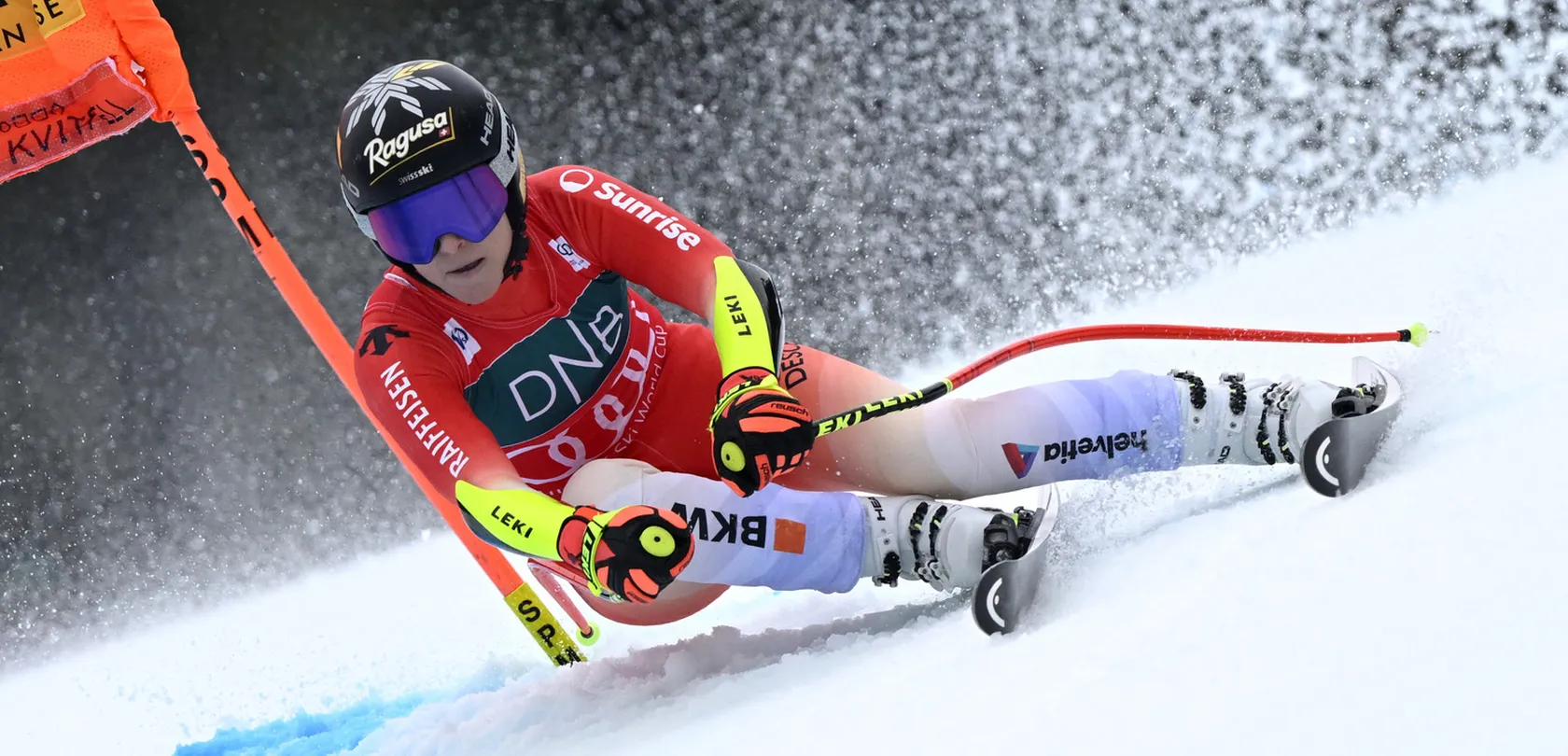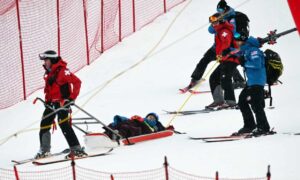
Lara Gut-Behrami, one of the most accomplished alpine skiers in the world, has had a career defined by breathtaking victories, but also by a recurring obstacle that has threatened to derail her dominance: knee injuries. Gut, a Swiss ski star with multiple World Cup titles and an Olympic medal to her name, has faced more than her fair share of setbacks, particularly with her knees. These injuries, which have struck at crucial points in her career, have forced Gut to navigate a delicate balance between recovery and performance. As she continues to chase her competitive goals, the question lingers: will Lara Gut ever fully overcome her knee problems, or will they continue to haunt her career?
A Career Defined by Talent and Injuries
Lara Gut-Behrami, burst onto the international skiing scene in 2008 as a precocious teenager, capturing attention with her speed, technical skill, and fearlessness. By the age of 17, she had already become the youngest skier to win a World Cup super-G race, and her trajectory toward greatness seemed unstoppable. However, just as her star began to rise, the first signs of trouble emerged.
In September 2009, at the age of 18, Gut suffered a dislocated hip during a training session. Though not a knee injury, this setback forced her to miss the entire 2009-2010 season, including the Vancouver Winter Olympics. For a young athlete with so much promise, it was a devastating blow. But Gut bounced back, returning stronger and more determined, winning multiple World Cup races and a bronze medal at the 2014 Sochi Olympics in the downhill.
Despite this success, her knees would soon become a recurring problem. In 2017, just a year after winning the overall World Cup title, Gut suffered a catastrophic anterior cruciate ligament (ACL) tear in her left knee during the World Championships in St. Moritz. This was the beginning of a string of knee issues that would plague her career and force her to spend months on the sidelines. The injury came at a time when Gut was at the peak of her powers, and it robbed her of crucial momentum.
The Brutality of Knee Injuries in Alpine Skiing
Knee injuries are all too common in alpine skiing, a sport that places enormous strain on the lower body. The combination of high speeds, sharp turns, and uneven terrain creates the perfect storm for knee problems, particularly ACL tears, which are among the most serious injuries an athlete can face. For skiers like Gut, who push their bodies to the absolute limit in pursuit of speed and precision, the risk is even greater.
Following her 2017 ACL injury, Gut underwent surgery and a long rehabilitation process. But as any athlete who has endured a knee injury will attest, the physical recovery is only half the battle. The mental challenge of returning to a sport where one wrong move could lead to another devastating injury can be just as taxing. For Gut, this struggle has been ongoing, and despite her fierce competitiveness and determination to return to the top, her knees have continued to trouble her.
The Setbacks Continue: Re-injury and Uncertainty
After returning from her ACL tear, Gut worked tirelessly to regain her form, but her performances were inconsistent. She struggled to recapture the dominance that had made her one of the sport’s brightest stars. In 2018, during the PyeongChang Winter Olympics, Gut’s struggles were evident. Though she competed, she failed to win a medal, a sharp contrast to the expectations placed on her prior to her injury. It was clear that her knee problems were not fully behind her.
Then, in subsequent seasons, Gut experienced further knee discomfort. Though not as severe as her 2017 ACL tear, these flare-ups hampered her ability to train and compete at the highest level. Knee pain became a constant companion, and her results reflected the toll it was taking on her body and her confidence. After several more surgeries and rehab stints, the once-dominant skier was faced with an all-too-familiar question: how much more could her knees take?
In an interview following one of her knee procedures, Gut spoke candidly about the emotional toll of repeated injuries. “It’s frustrating,” she admitted. “You put in the work, you push yourself to come back, and then you feel like your body is betraying you.” Her words reflected the exasperation of an athlete who has faced more than her share of physical adversity.
A Resilient Return to Form
Despite the setbacks, Gut has shown remarkable resilience. In the 2020-2021 season, she mounted an impressive comeback, winning the super-G World Cup title and finishing second overall in the standings. Her victory in the 2021 World Championships super-G event proved that even after years of knee problems, Gut could still compete at the highest level. Her tenacity and ability to push through the pain became a testament to her character, earning her widespread admiration from fans and fellow athletes alike.
Yet even as Gut reclaimed her spot among the sport’s elite, the specter of her knee issues loomed large. She continued to experience pain and discomfort, forcing her to be selective about her race schedule. In some events, Gut looked every bit the champion she had always been, but in others, her performance was visibly hindered, as though her body was reminding her of the limits imposed by years of wear and tear.
The Long-Term Impact of Repeated Knee Injuries
For an athlete like Lara Gut, knee problems are not just a short-term obstacle—they can have long-lasting implications on both her career and her quality of life after skiing. Repeated surgeries and rehabilitation can weaken the knee joint, increasing the likelihood of further injuries. Moreover, the psychological toll of competing with the constant threat of injury can sap an athlete’s confidence and diminish their competitive edge.
In Gut’s case, her history of knee injuries has undoubtedly forced her to adapt her skiing style. She has had to be more cautious, more selective about when and where she pushes herself to the limit. This shift in approach may help preserve her career in the long run, but it also means that Gut is constantly walking a fine line between competing at an elite level and protecting her body from further harm.
Looking to the future, it is unclear how many more seasons Gut’s knees will allow her to compete. While she remains a force in alpine skiing, her injury history raises questions about her long-term prospects. Will she be able to continue at the top level, or will her knees eventually force her into an early retirement?
A Champion’s Resolve
Lara Gut-Behrami career has been a story of triumph over adversity. Despite the numerous setbacks, she has proven time and again that she is one of the toughest and most determined athletes in the sport. Her willingness to fight through pain and injury is a testament to her love for skiing and her desire to continue competing at the highest level.
However, Gut’s reoccurring knee problems serve as a reminder of the fragility of even the most elite athletes. In a sport as demanding as alpine skiing, where fractions of a second can mean the difference between victory and defeat, the body can only endure so much.
For now, Gut continues to race, her eyes fixed on adding more titles to her already illustrious career. But the future remains uncertain. As her knees continue to be a cause for concern, one can only hope that Lara Gut will be able to write the final chapters of her career on her own terms, rather than having her body make the decision for her.






